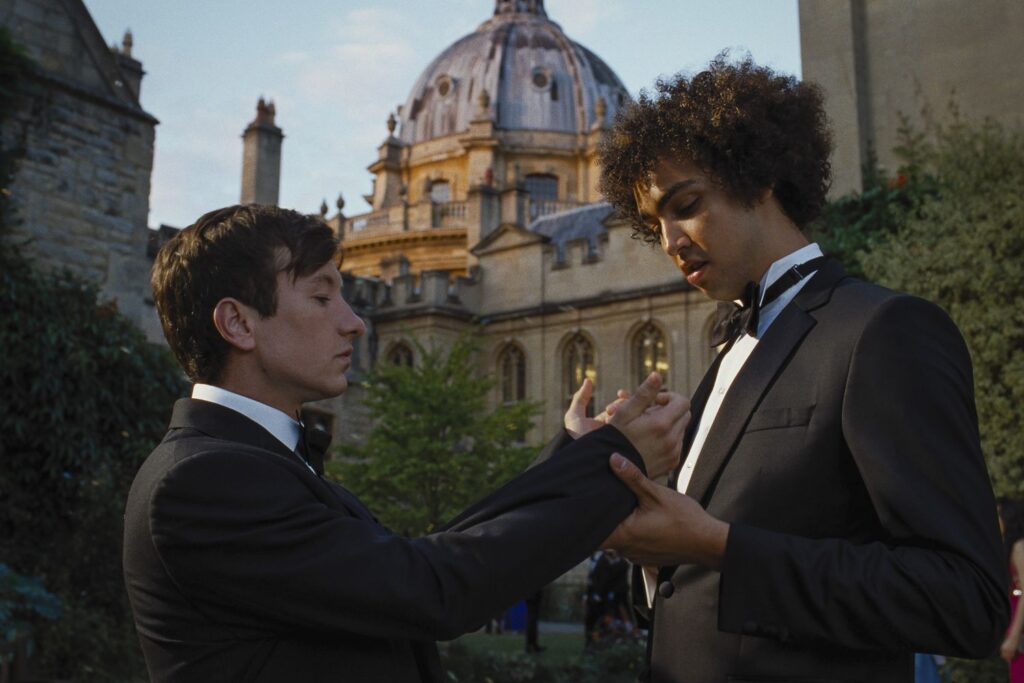Saltburn: Brother, Can You Spare a Crime?

“Eat the rich” is generally meant as a metaphor, but in Saltburn, the new psychodrama from Emerald Fennell, it verges on becoming literal. Midway through the movie, during one of the many pivot points in its kinked narrative, a young man coos that he intends to devour his female quarry before burying his face between her legs. Shortly thereafter, we see him sinking into a bathtub, blood dripping down his chin, like a vampire crawling into his coffin after a fresh kill.
This is among the movie’s plentiful striking images that are designed to induce a gasp of horror or a shudder of pleasure. Saltburn’s plot may traffic in ghastly occurrences—deception, suicide, murder, undercooked eggs—but it primarily operates as a work of provocation. If you find yourself clucking your tongue at its tactlessness or wincing at its indecency, you are simply playing your part as the appalled observer. To paraphrase a popular line that tends to circulate on social media, the obscenity is the point. Read More

